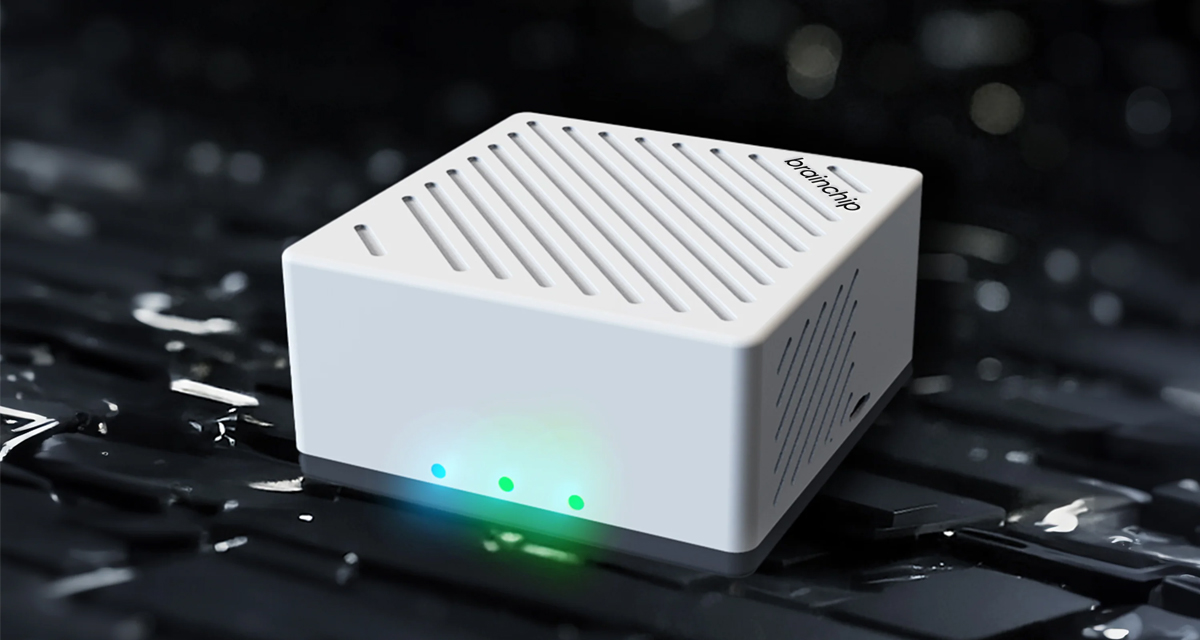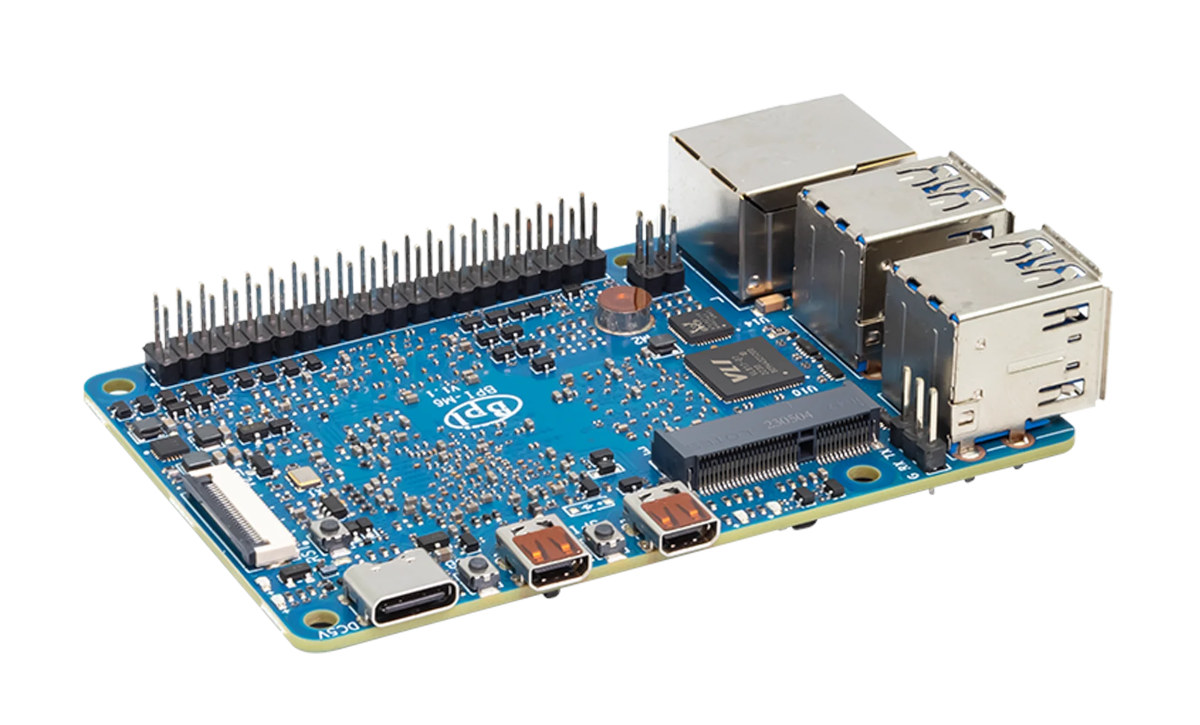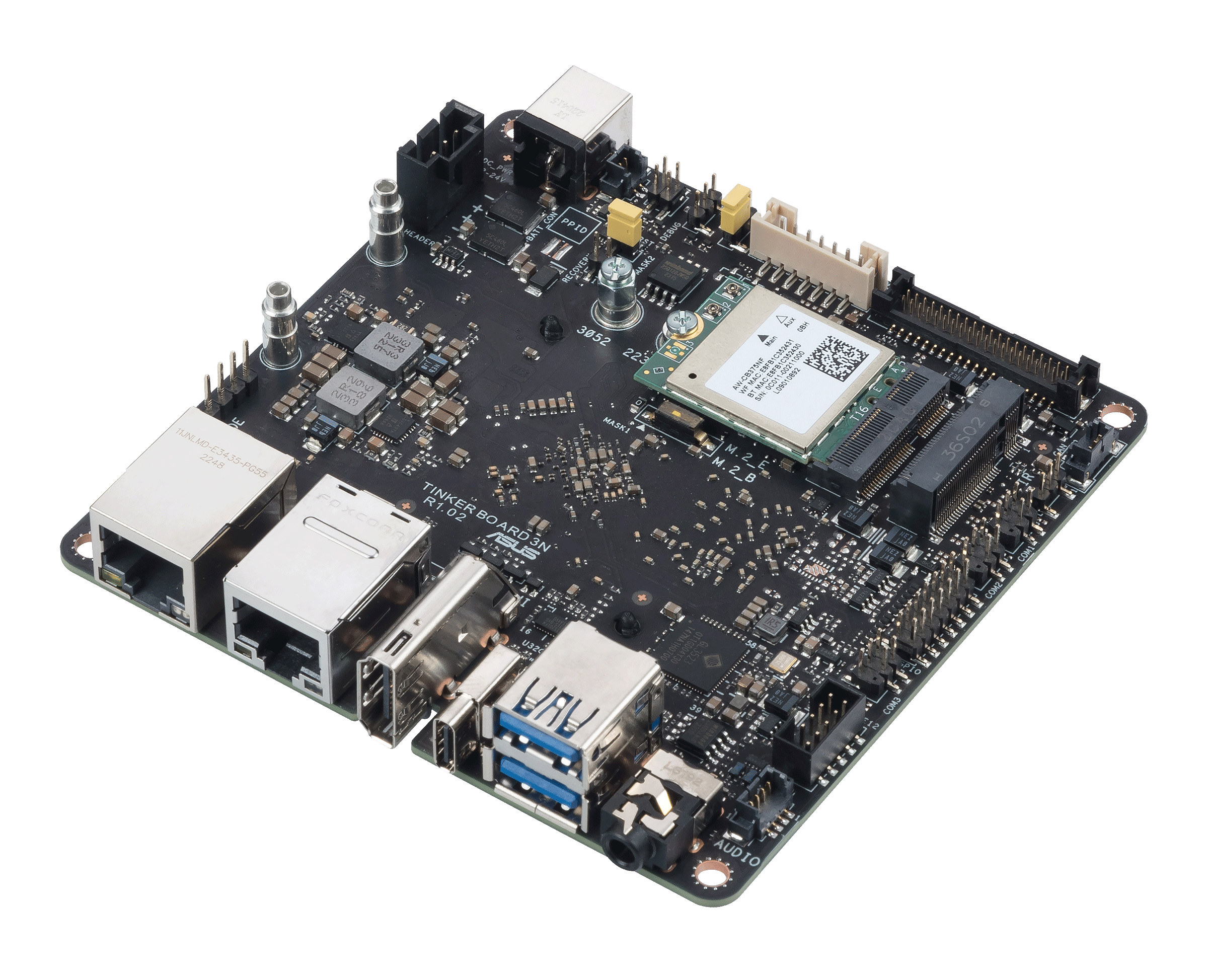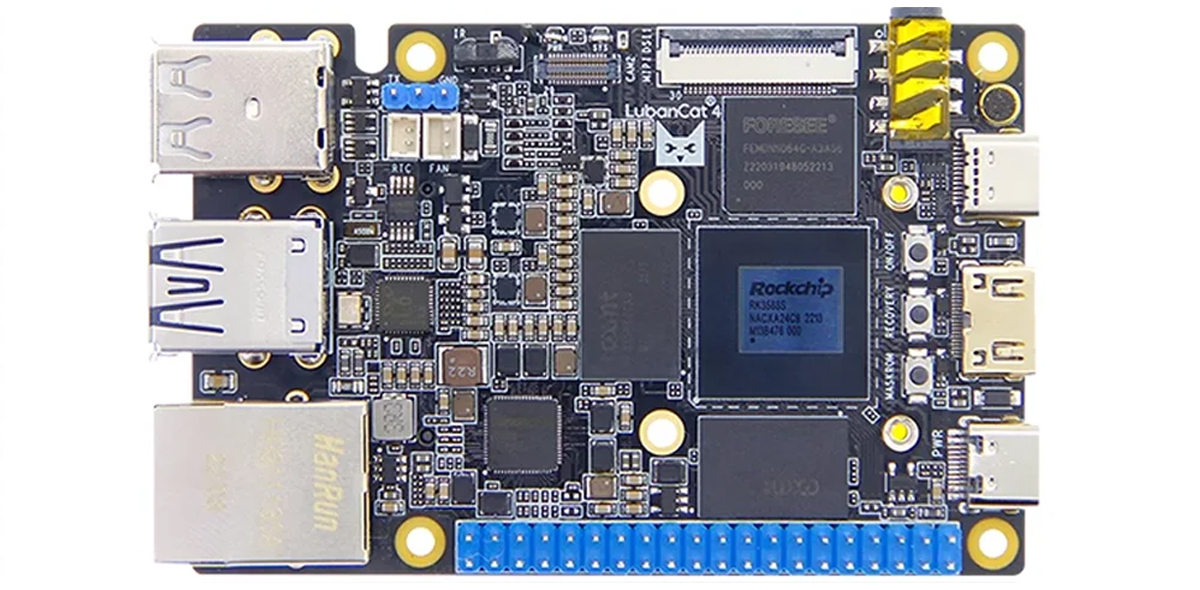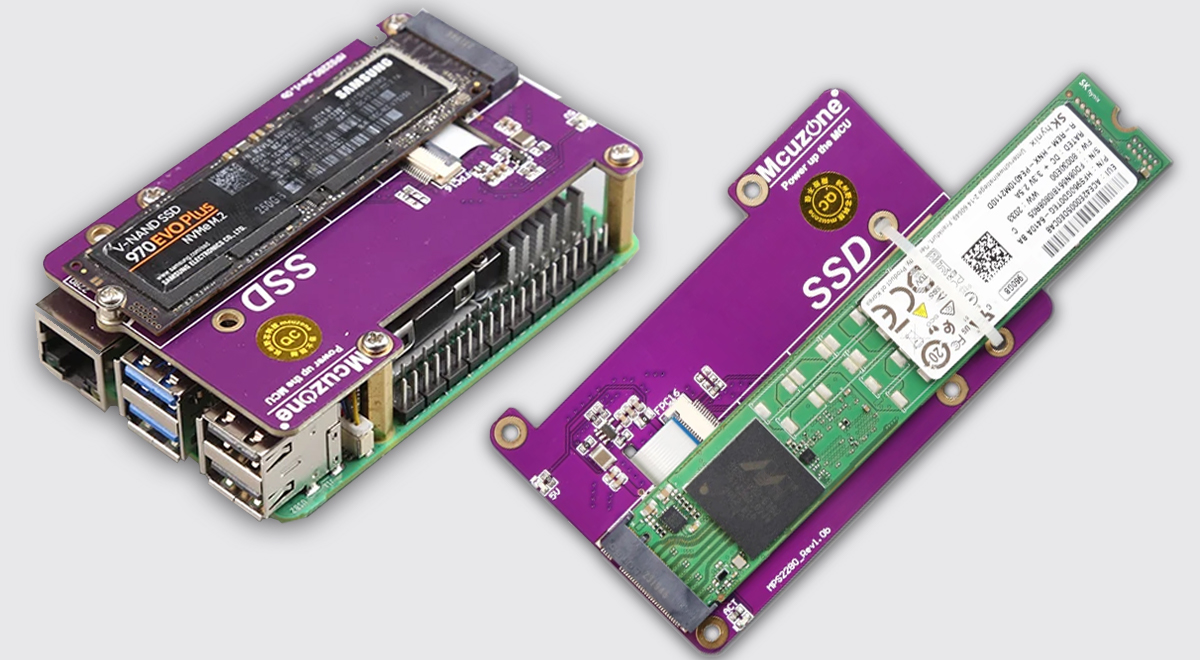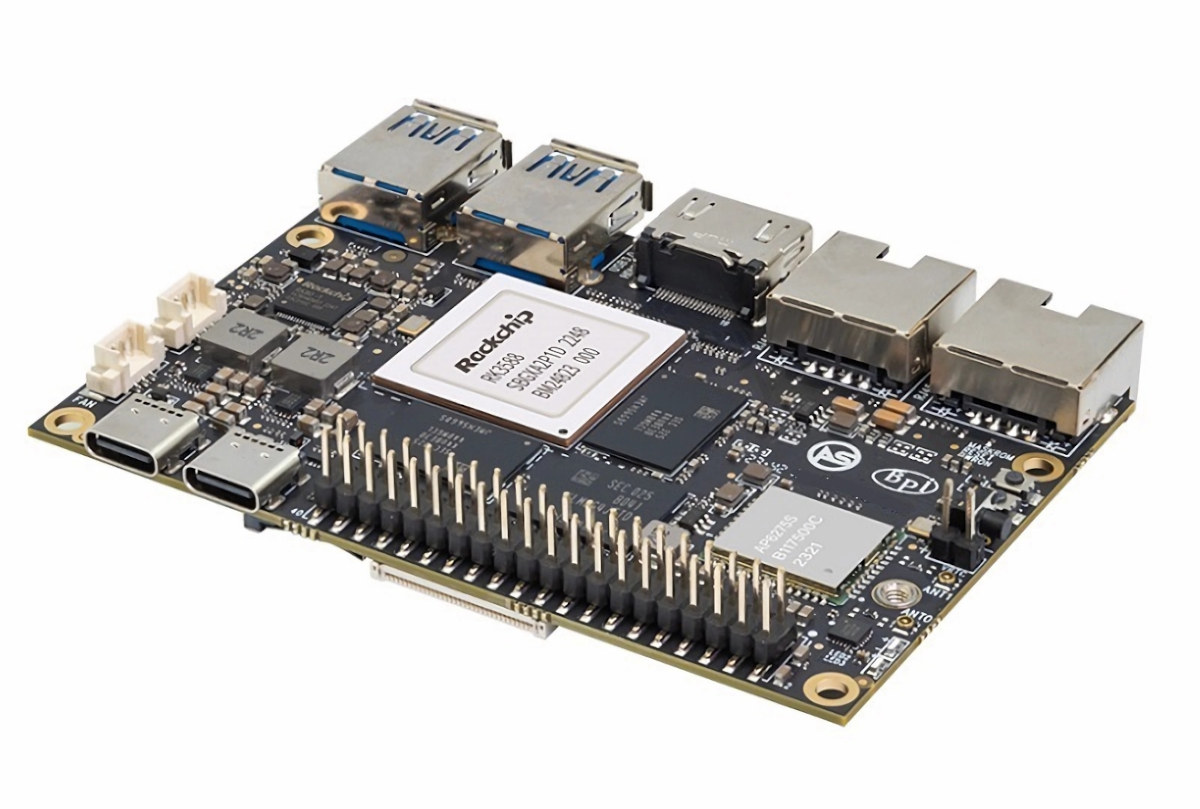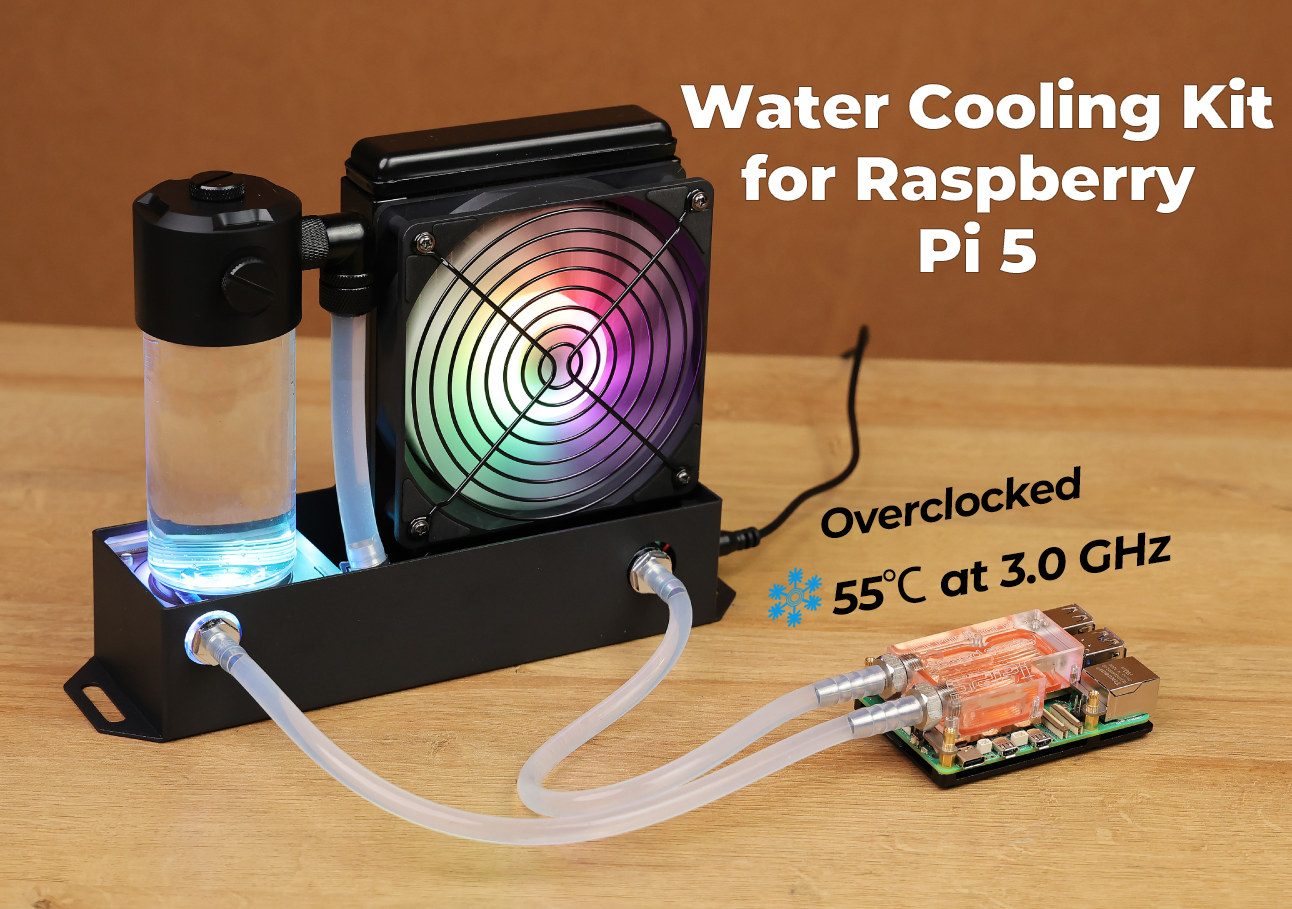BrainChip has recently opened preorders for their Akida Edge AI Box, built in partnership with VVDN Technologies. This box features an NXP i.MX 8M Plus SoC and two Akida AKD1000 neuromorphic processors for low-latency, high-throughput AI processing at the edge. The system features USB 3.0 and micro-USB ports, HDMI, 4GB LPDDR4 memory, 32GB eMMC with up to 1TB micro-SDXC expansion, dual-band Wi-Fi, and two gigabit Ethernet ports for external camera connections, all within a compact, passively-cooled chassis, powered by 12V DC. BrainChip Akida Edge AI Box Specifications: Host CPU – NXP i.MX 8M Plus Quad SOC with 64-bit Arm Cortex-A53 processor running at up to 1.8GHz AI/ML Accelerator – Dual Brainchip AKD1000 (Akida Chip) over PCIe for efficient AI processing Memory – 4GB LPDDR4 Storage 32GB eMMC flash MicroSD card slot for additional storage options Display Output – HDMI output supporting up to 3840 x 2160p30 resolutions with a pixel clock […]
Banana Pi BPI-M6 SBC features SenaryTech SN3680 quad-core Cortex-A73 AI processor
Banana Pi BPI-M6 is a credit-card single board computer based on SenaryTech SN3680 SoC comprised of a quad-core Arm Cortex-A73 processor, an Arm Cortex-M3 real-time core, an Imagination GE9920 GPU, and an NPU delivering up to 6.75 TOPS. The board ships with 4GB LPDDR4 RAM and 16GB eMMC flash. Its layout is fairly similar to the one of the Raspberry Pi 4 with four USB ports, Gigabit Ethernet, a 40-pin GPIO header, a USB Type-C port for power, and two micro HDMI ports. However, only one of those is for HDMI output, as the second is for HDMI input, and there’s also an M.2 Key-E socket for expansion. Banana Pi BPI-M6 specifications: SoC – SenaryTech SN3680 (also known as Synaptics VS680) with CPU – Quad-core Arm Cortex-A73 processor up to 2.1GHz MCU – Arm Cortex-M3 real-time security core @ 250MHz GPU – Imagination PowerVR Series9XE GE9920 GPU VPU – 4Kp60 […]
Rockchip RK3568-powered ASUS Tinker Board 3N is now available in three variants
The ASUS Tinker board 3 was first unveiled in April 2023 before being renamed as Tinker Board 3N later that year, and the three variants of the Rockchip RK3568 single board computer (SBC) are now available. The standard configuration is the Tinker Board 3N in the commercial temperature range, while the Tinker Board 3N Plus has the same features, except it can operate in the industrial temperature range (-40°C to 85°C). The Tinker Board 3N Lite is a cost-down version in the same form factor, but with a single gigabit Ethernet port without PoE support, no M.2 B-key socket for an NVMe SSD or 4G/5G cellular connectivity, no 16MB SPI flash, fewer serial interfaces, and no CAN Bus. You’ll find a comparison of the specifications for the three variants in the table below. Note the prices above are from Amazon with a 10% discount when applicable. ASUS provides support for […]
EmbedFire LubanCat 4 card computer – A Rockchip RK3588S dev board with a mini PCIe socket for WiFi or 4G LTE
Launched by Yehuo Electronic EmbedFire LubanCat 4 card computer or LubanCat 4 in short, is a Rockchip RK3588S SBC that packs quite a lot of features in an 85x56mm form factor with Ethernet, USB, mini PCIe, HDMI 2.1, SIM & microSD card holder, and more. The board comes with up to 16GB of RAM and 128GB of eMMC flash. It comes with a Gigabit Ethernet port, five USB ports (including one USB-C), a built-in microphone, multiple audio inputs and outputs, a 40-pin Raspberry Pi compatible expansion header, and supports HDMI input through an adapter connected to a MIPI CSI port. EmbedFire LubanCat 4 card computer specifications: SoC – Rockchip RK3588S CPU – Octa-core processor with 4x Cortex-A76 cores @ up to 2.2-2.4 GHz, 4x Cortex-A55 cores @ up to 1.8 GHz GPU – Arm Mali-G610 GPU with OpenGL ES 3.2, OpenCL 2.2, and Vulkan 1.2 support VPU – 8Kp60 video decoder […]
ODROID-M1S review – Part 2: Ubuntu 20.04 benchmarks and features testing
Over one month has passed since our unboxing and quick Ubuntu 20.04 testing of the ODROID-M1S SBC and we’ve now had time to test more features and run benchmarks using the official Ubuntu 20.04.6 LTS release from Hardkernel. One user mentioned Ubuntu 22.04 is supported, but that’s supported by a third party and we used the official image for testing.
Our test results will show the performance and supported features of the Rockchip RK3566-powered ODROID-M1S SBC when running Ubuntu 20.04. Read on to find out how well the board works.
ODROID-M1S benchmarks
Let’s start benchmarking the ODROID-M1S with Thomas Kaiser’s sbc-bench.sh script:
Mcuzone MPS2280 M.2 NVMe HAT for Raspberry Pi 5 takes an up to 22110 Gen3 SSD drive
The Mcuzone MPS2280 M.2 NVMe HAT is another PCIe to NVMe adapter board built for the Raspberry Pi 5. What sets it apart from other boards is that it supports 2280 SSDs and offers the option to Jerry-rigg a 22110 SSD with zip ties. Previously we have covered many PCIe to NVMe expansion boards such as Pimoroni NVMe Base, Geekworm X1003 PCIe to NVMe SSD adapter, and PineBerry Pi’s HatDrive, so feel free to check those out if interested. Mcuzone MPS2280 M.2 NVMe HAT specifications: PCIe Support – Compatible with PCIe x1 interface, offering Gen2 and Gen3 modes. SSD compatibility – Supports M.2 M-key interface with 2280, 2242, and 2230 size SSDs, and offers the option to Jerry-rigg a 22110 SSD with zip ties. SSD booting – Enables booting from an NVMe SSD, with options for storage expansion. Alternatively, the system can boot from TF while using the SSD for […]
Banana Pi BPI-M7 – A thin Rockchip RK3588 SBC with dual 2.5GbE, M.2 NVMe storage, HDMI 2.1, and more
Banana Pi BPI-M7 SBC is powered by a Rockchip RK3588 SoC and comes with a low profile design that reminds me of boards from Khadas such as the Khadas Edge2 or VIM4 SBCs but with a few extra ports thanks to the larger form factor. The Banana Pi BPI-M7 single board computer is equipped with up to 32GB RAM and 128GB eMMC flash and features an M.2 2280 socket for one NVMe SSD, three display interfaces (HDMI, USB-C, MIPI DSI), two camera connectors, dual 2.5GbE, WiFi 6 and Bluetooth 5.2, a few USB ports, and a 40-pin GPIO header for expansion. Banana Pi BPI-M7 specifications: SoC – Rockchip RK3588 octa-core processor with CPU – 4x Cortex‑A76 cores @ up to 2.4 GHz, 4x Cortex‑A55 core @ 1.8 GHz GPU – Arm Mali-G610 MP4 “Odin” GPU Video decoder – 8Kp60 H.265, VP9, AVS2, 8Kp30 H.264 AVC/MVC, 4Kp60 AV1, 1080p60 MPEG-2/-1, VC-1, […]
52Pi water cooling kit keeps the Raspberry Pi 5 SBC cool at 3.0 GHz
If you like fancy, but somewhat expensive and useless things, 52Pi’s water cooling kit for Raspberry Pi 5 SBC may be right up your alley and the over-engineered cooling solution sells for $120 on Seeed Studio where we discovered the kit. We’ve already seen the active cooler and official case do a decent job at cooling the Raspberry Pi 5, but several companies have also launched fanless cases for the latest Pi single board computer. Water cooling may only make sense when attempting to overclock the Raspberry Pi 5, and 52Pi claims the Broadcom BCM2712 processor can run a 3.0 GHz at a relatively cool temperature of 55°C. 52Pi water cooling kit content: Main water cooling unit with RGB LED fan, water tank, and base Water cooling radiator (that’s the orange thing on top of the Raspberry Pi) Black heatsink 2x Silicone hoses 12V/2A power adapter (US) 4x M2.5*10 hexagonal screws […]


